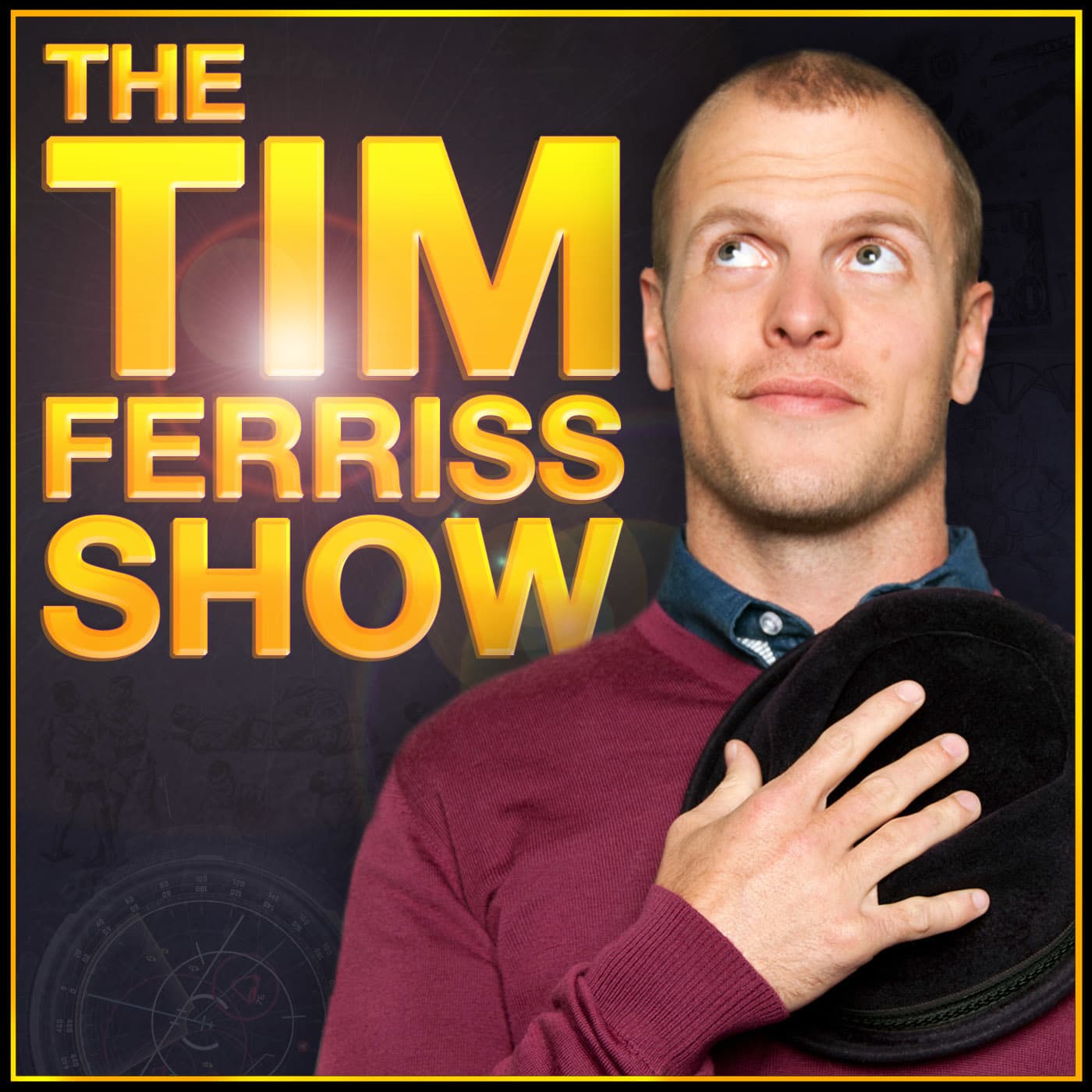
April 30, 2024 • 31min
#734: In Case You Missed It: March 2024 Recap of "The Tim Ferriss Show"
The Tim Ferriss Show

Key Takeaways
- Develop strong tenacity and resilience - "If you love it, make it your life. Right along with that, be tenacious. Learn that the most important thing about being knocked down is getting back up." - Scott Glenn
- Avoid a victim mindset - "I think recovering from failure in my book is 95% of life. If you're going to have a good life, you better be really good at getting back up." - Barbara Corcoran
- Embrace discomfort and create "vacuums" to spur new creative projects - "Creating a vacuum is required so that I will do the hard work of filling the vacuum." - Seth Godin
- Develop a daily writing habit, even if the quality varies - "If I did a thousand words a day, and what I find helpful in my word document, whatever I'm working on, there's the word count written in the document at the end." - Hugh Howey
- Read high quality prose to improve your own writing - "Reading beautiful prose is almost like striking a tuning fork. Before your writing session, I think it's really awesome to pick up." - Hugh Howey
Introduction
This episode is a special recap featuring short clips from the past month's episodes of The Tim Ferriss Show. Host Tim Ferriss interviews a diverse array of world-class performers - from legendary actor Scott Glenn, to Shark Tank investor Barbara Corcoran, to bestselling author Seth Godin, to sci-fi writer Hugh Howey.
The format allows listeners to get a taste of each guest and episode, with the goal of whetting their appetite to go back and listen to the full conversations. As Tim explains, this format is an experiment to counter the trend of too much sedentary podcast listening, encouraging more movement and activity.
Topics Discussed
Scott Glenn: Lessons on Tenacity and Purpose (3:20)
- Scott Glenn, an acclaimed actor with a 60-year career, shares advice he received from Lawrence Olivier: "Develop very strong jaw muscles. Learn how to bite on and not let go."
- The key is pure tenacity - "If you're a monk outside the gates with a beggar's bowl and you stay out there long enough, they'll finally get sick of seeing you open the gates and let you in."
- Glenn emphasizes the importance of making your passion your life's work: "If you love it, make it your life."
Barbara Corcoran: Overcoming a Victim Mindset (5:10)
- Corcoran, the famous Shark Tank investor, credits her resilience to being dyslexic as a child and constantly being "put down" and "looked down on."
- She learned early on that "recovering from failure is 95% of life" and developed the ability to quickly "get back up" after setbacks.
- Corcoran says the difference between top salespeople and average ones was "how long they take to feel sorry for themselves" - a mindset she cultivated.
Seth Godin: Creating Discomfort to Spur New Projects (8:11)
- Godin, a prolific author and marketing expert, explains why he stops successful creative projects - "Creating a vacuum is required so that I will do the hard work of filling the vacuum."
- He says if he keeps doing the same thing, "there is no vacuum" to motivate him to take on new challenges.
- Godin's goal is not to maximize income or audience size, but to create things that the people he's serving are "glad that I did that" and that he's "glad I did it."
Hugh Howey: Developing a Daily Writing Habit (15:44)
- Howey, a bestselling sci-fi author, emphasizes the importance of a daily writing practice, even if the quality varies.
- He aims for 1,000 words per day, tracking the running word count to keep himself accountable.
- Howey also recommends reading high quality prose to "strike a tuning fork" and improve one's own writing, citing authors like Proust, Amal El-Mohtar, and Gabrielle Zevin.
Conclusion
This recap episode provides a diverse set of insights and advice from four accomplished guests across different fields. The common threads include the importance of resilience, embracing discomfort to spur creativity, developing consistent habits, and learning from high-quality sources.
Whether it's Scott Glenn's lesson on tenacity, Barbara Corcoran's perspective on overcoming a victim mindset, Seth Godin's strategy of creating "vacuums" to motivate new projects, or Hugh Howey's tips on building a daily writing practice, each guest offers wisdom that listeners can apply to their own lives and pursuits. The format allows for a quick sampling of these ideas before diving into the full episodes.
Overall, this recap serves as an engaging and actionable introduction to The Tim Ferriss Show, whetting the appetite for the wealth of knowledge and insights available in the podcast's extensive back catalog.